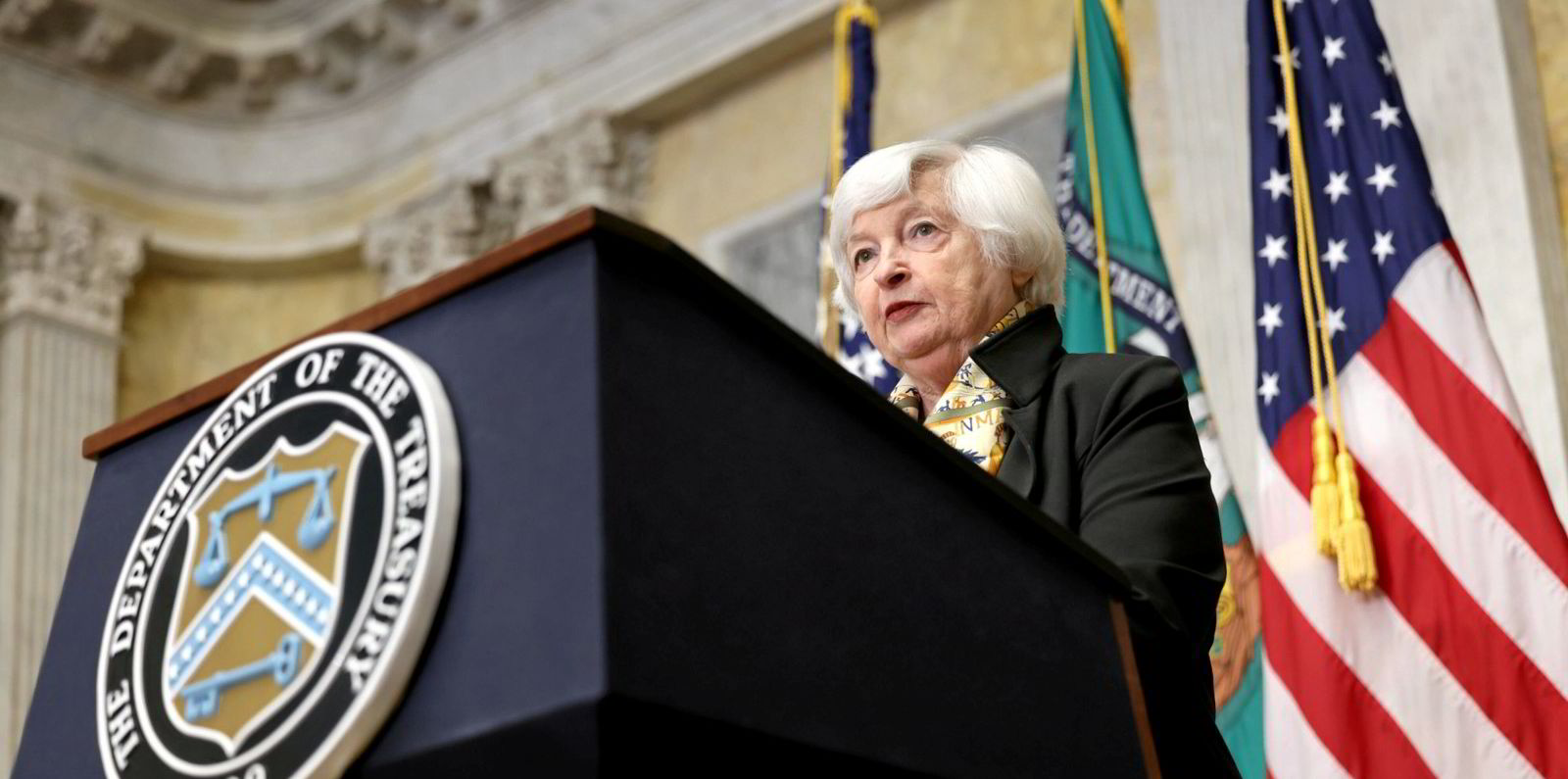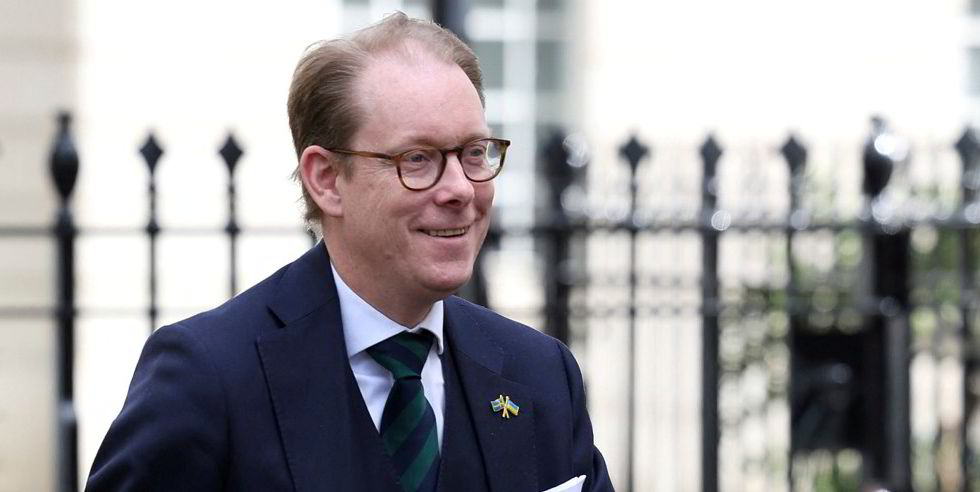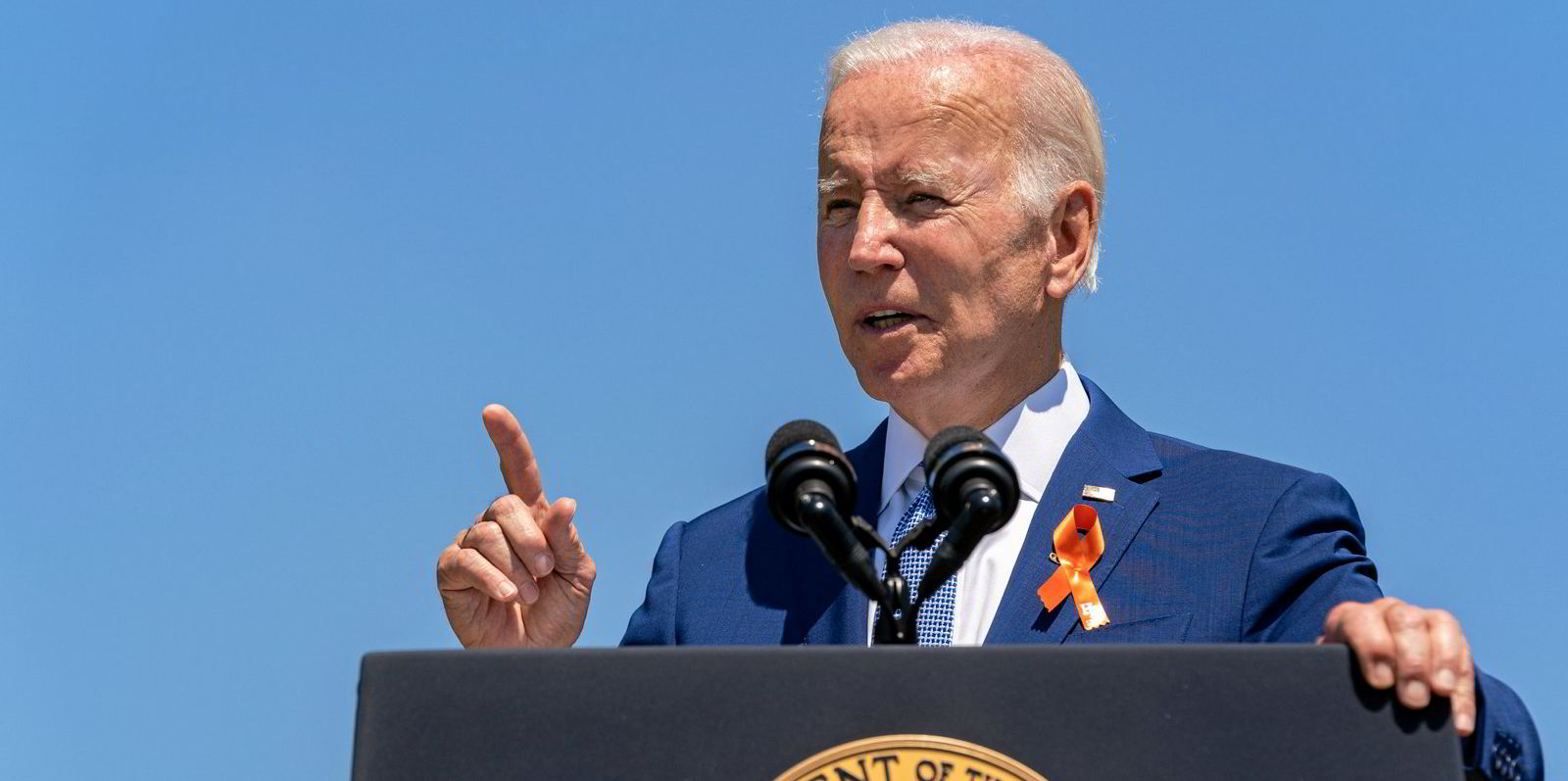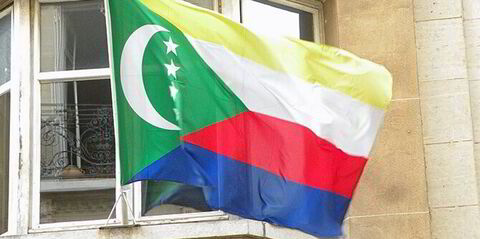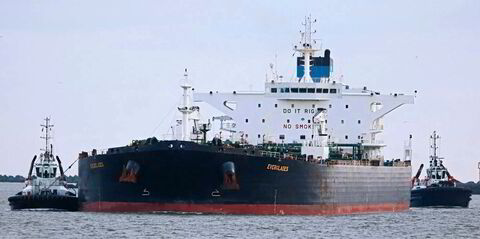With the US continually turning to its blacklist to counter geopolitical rivals, the targets — and demands on compliance departments — have shifted.
Speaking at the TradeWinds Shipowners Forum in New York on Wednesday, Miller & Chevalier attorney Laura Deegan said the US Treasury Department’s Office of Foreign Assets Control (Ofac) is increasingly looking at third parties in its crackdown on allegedly malign actors.
“That poses a lot of risks for companies that say, ‘We don’t have business in Iran, we don’t have to worry about sanctions’,” said Deegan, who formerly worked for Ofac.
“What it really means is that even countries who don’t have business in those embargoed countries, they really have to be aware of their upstream and downstream supply chains.”
Sanctions evaders are using increasingly complicated means to avoid detection by US authorities, including AIS spoofing, she said, so shipowners and others need to know if their counterparties have exposure to Russia, Iran or other countries hit with sanctions.
Deegan added that some companies are turning to software solutions to ensure sanctions compliance and the Treasury Department has access to them, too, bringing with it the expectations that those tools be used.
The US has not been shy about using sanctions on Russia, Iran and others as conflicts flare globally.
Iran had been under heavy sanctions since 2018, when then-president Donald Trump dropped out of an agreement under which Iran would return to mainstream oil trading in exchange for limits on its nuclear programme.
This week, US Treasury secretary Janet Yellen threatened more sanctions on the country following its seizure of a container ship over the weekend and a subsequent drone and missile attack targeting Israel.
On Wednesday, the US said it would return Petroleos de Venezuela SA to its blacklist after a six-month suspension of sanctions that was granted in the hope that Venezuela would make electoral reforms ahead of July’s election.
The US is party to the G7 price cap, which allows the sale of Russian crude and products below certain prices to ensure global energy markets are supplied while curbing Moscow’s ability to raise funds for its invasion of Ukraine.
Washington has also returned Yemen’s Houthis to its list of terrorist groups to try to cut them off economically following a string of attacks on commercial ships.
